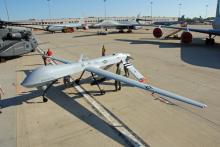Pakistan
Malala Yousafzai, the teenage girl who was shot by Taliban gunmen in Pakistan for her activism, is recovering at a hospital in Britain. The Guardian reported this morning
“Malala Yousafzai, the teenage girl flown to Britain for treatment after being shot in the head by Taliban gunmen in Pakistan, has the potential to make "pretty much a full recovery", her doctors have said.
“She is able to stand with help and is writing notes, and although the bullet grazed her brain she has not shown "any deficit in terms of function", doctors at Queen Elizabeth hospital in Birmingham said on Friday. She was "not out of the woods but is doing very well", said Dr. Dave Rosser, medical director of the University Hospitals Birmingham NHS foundation trust.”
The shooting has attracted a mass outpouring of support, both in Pakistan around the world. And Yousafzai is apparently aware of that support. According to Dr. Rosser
"She is keen that people share the details. She is also keen that I thank people for their support and their interest. She is obviously aware of the amount of support and interest this has generated around the world. She is keen to thank people for that."

Last weekend, the government of Pakistan prevented an anti-drone protest from entering the tribal regions. Led by former cricket star and now politician Imran Khan and including a delegation of 30 US activists, the caravan was blocked by barricades guarded by riot police.
The Guardian reported:
“Makeshift roadblocks, security threats and warnings from Pakistan's army forced Imran Khan to abandon his unprecedented attempt to lead a cavalcade of anti-drone protesters deep into the country's restive tribal belt on Sunday. Leading a convoy of thousands, the former cricketer was within striking distance of South Waziristan, where the CIA uses remote-controlled planes in the fight against Islamist militants, when he abruptly turned back.
“Later Khan said he had changed plan because of warnings from the army and the risk of becoming stuck after the military-imposed curfew. Addressing an impromptu rally of his supporters, he said the convoy had still been a huge success because he had gone to areas his political rivals "can only look at on maps." "We want to give a message to America that the more you carry out drone attacks, the more people will hate you," Khan told the crowd of around 2,500 supporters.”
On Wednesday, the drone strikes resumed. BBC reported
“A US drone strike targeting a militant base has killed five insurgents in a Pakistani tribal region near the Afghan border, security officials say. … "Several US drones flew into the area before dawn and fired four missiles on a compound, killing five militants," a security official told the AFP news agency after the strike in Hurmuz area, east of Miranshah, the capital of North Waziristan.”
Thursday, another major strike in which Pakistani newspaper Dawn reported 16 people were killed.
“A US drone attack killed 16 suspected militants and injured six others in the Orakzai agency of Pakistan’s tribal region on Thursday. Four missiles were fired in the Buland Khel area of the Orakzai agency, which is close to the borders of the North and South Waziristan tribal regions in Fata.”
The Associated Press added that according to a government administrator, as many as 12 others were injured and that “Drones were still flying over the site of the attack and locals were reportedly staying away from the site.”
One thing that characterized Afghanistan under Taliban rule before 2001 was their treatment of women and girls. From a society of total repression, new expressions of education, culture and human rights have slowly evolved. As you might suspect, Taliban groups in both Afghanistan and Pakistan are not pleased with that development.
On Tuesday, Malala Yusufzai, a 14-year-old education rights activist, was shot and seriously injured on her way home from school in the Swat Valley region of northwest Pakistan. The New York Times, using local news sources, reported on her injuries
"Pakistan’s Express Tribune reported that doctors at a hospital in Mingora, the region’s main city, said that Malala was “out of danger” because the bullet that “struck her skull and came out on the other side and hit her shoulder” had not damaged her brain. The newspaper added that the girl was later moved to Peshawar in a Pakistani Army helicopter.
"But The News, a Pakistani daily, reported late Tuesday that a bullet is still lodged in her head and arrangements were being made by the government to transport Malala abroad for emergency surgery that could not be performed at the military hospital in Peshawar. The newspaper Dawn also reported that surgeons at the military facility said “she immediately needs a sophisticated surgical procedure, which is not possible in the country” to save her life."
The Taliban is unrepentant. According to Al Jazeera,
"The Tehreek-e-Taliban Pakistan (TTP) has since claimed responsibility for the attack.
"Taliban spokesman Ehsanullah Ehsan told the AFP news agency that the group carried out the attack after repeatedly warning Malala to stop speaking out against them.
"She is a Western-minded girl. She always speaks against us. We will target anyone who speaks against the Taliban," he said by telephone from an undisclosed location. "We warned her several times to stop speaking against the Taliban and to stop supporting Western NGOs, and to come to the path of Islam."
One of the challenges facing the U.S. withdrawal of troops is how to provide security for those courageous activists for women’s and girl’s rights and advancement. In a recent study, “Afghan Women Speak,” David Cortright and Kristen Wall at the Kroc Institute for International Peace Studies propose that
“Demilitarization and negotiation of a peace agreement should be coupled with the deployment of an interim peacekeeping force under the auspices of the United Nations to provide transitional security protection for civilians.”
Something along those lines must be created, or we will be reading more stories of advocates being attacked.

People of Jesus work against demons — against the forces of evil that eat away at the goodness of God, the wonder of creation, the life of God in the world. Demonic forces roam the world, corrupting minds and bodies, cultures and governments, trying to bring ruin upon all that is good and beautiful. They dehumanize, devastate, and destroy life.
Weaponized drones are demons: evil spirits of the air, specters in the heavens, shadowy presences. They are forces of evil in heavenly places, triggering mental anxiety and bodily harm, instigating psychological damage and death, raining down terror and trauma.

Researchers at Stanford University and New York University law schools released a major study on the U.S. use of drones in Pakistan, commissioned by a London-based human rights group Reprieve. The study, Living Under Drones, took nine months to complete, including two trips to Pakistan and more than 130 interviews with victims, witnesses and experts. The Bureau of Investigative Journalism is cited in the report for “the best currently available public aggregate data on drone strikes.”
The four major conclusions of the study, highlighted in its executive summary, are:
“First, while civilian casualties are rarely acknowledged by the US government, there is significant evidence that US drone strikes have injured and killed civilians.
“Second, US drone strike policies cause considerable and under-accounted-for harm to the daily lives of ordinary civilians, beyond death and physical injury. Drones hover twenty-four hours a day over communities in northwest Pakistan, striking homes, vehicles, and public spaces without warning. Their presence terrorizes men, women, and children, giving rise to anxiety and psychological trauma among civilian communities.
“Third, publicly available evidence that the strikes have made the US safer overall is ambiguous at best. The strikes have certainly killed alleged combatants and disrupted armed actor networks. However, serious concerns about the efficacy and counter-productive nature of drone strikes have been raised. The number of “high-level” targets killed as a percentage of total casualties is extremely low—estimated at just 2%.
“Fourth, current US targeted killings and drone strike practices undermine respect for the rule of law and international legal protections and may set dangerous precedents. This report casts doubt on the legality of strikes on individuals or groups not linked to the terrorist attacks of September 11, 2011, and who do not pose imminent threats to the US.”
You can read the entire report, along with data, victim’s stories, and resources.
News stories on the study include BBC, Guardian, Chicago Tribune/Los Angeles Times, and CNN.

In the second attack in three days, a drone attack late Monday in northwest Pakistan killed five militants, including two linked to al Qaeda. DAWN reports
“Two key al Qaeda linked operatives, including an operational commander have been killed in Monday’s US drone strike in North Wazirsitan Agency, official sources said.
“The al Qaeda linked militants killed in the drone strike have been identified as Abu Kasha Al-Iraqi and Saleh Al-Turki, an intelligence source told Dawn.Com.
“Abu Kasha Al-Iraqi, hailing from Iraq, had arrived in North Waziristan Agency in 2001 and had since been one of the key operational commanders of the al Qaeda in North Waziristan tribal region, intelligence officials said.”
The Associated Press and Agence France Presse carried earlier reports of the story, before the identifications were made.

Al Jazeera reports:
“At least three people have been killed in a suspected US drone attack in Pakistan's northwestern region along the Afghan border, according to a Pakistani security official.
“The target of Saturday’s attack was a vehicle in Dattakhel area in North Waziristan, one of seven tribal districts and hotbed of al-Qaeda-linked fighters. All three people travelling in the car were killed and the vehicle completely destroyed, the security official said on condition of anonymity.”
The attack was also reported in Pakistani newspapers DAWN and The Nation.
Religious rights activists are hailing the release over the weekend of an Iranian pastor accused of apostasy and a Pakistani girl who was charged with blasphemy.
Pastor Youcef Nadarkhani was released on Saturday after a six-hour hearing, reported the American Center for Law and Justice, which worked to garner American support for the minister’s release. The Christian convert had faced possible execution.
“Your prayers, your advocacy, and your voice has been heard,” read an online announcement from ACLJ.
The U.S. Commission on International Religious Freedom welcomed Nadarkhani’s release “after being unjustly imprisoned for three years because of his faith,” said its chair, Katrina Lantos Swett.

The Bureau of Investigative Journalism has released its monthly report on covert actions in Pakistan, Yemen, and Somalia.
Pakistan: August sees the highest number of CIA strikes in Pakistan since October 2011. A number of senior militants are killed along with at least two named civilians.
July 2012 actions
Total CIA strikes in August: 7
Total killed in strikes in August: 29-65, of whom at least 2 were reportedly civilians
For the Bureau’s full Pakistan databases click here.
Yemen: At least 26 people are killed in five confirmed US drone strikes in Yemen. This is still less than the May peak. Civilian casualties are confirmed for the first time since May.
August 2012 actions
Confirmed US drone strikes: 5
Further reported/possible US strike events: 1
Total reported killed in US operations: 26-33
Civilians reported killed in US strikes: 2
Click here for the full Yemen data.
Somalia: For the fourth month no US military actions are reported in Somalia.

U.S. drones are having a busy weekend, killing people in both Pakistan and Yemen.
On Saturday, an attack in Pakistan is reported to have killed six people. Pakistan’s The Nation reports that “A U.S. drone strike targeting a compound on Saturday killed at least six suspected militants in North Waziristan’s Datta Khel tehsil bordering Afghanistan.” DAWN newspaper added that “six drones flying low in Dattakhel fired four rockets on a vehicle and a house.”
On Sunday, AP reported a strike in Yemen killed five people, including a top al-Qaida militant wanted for allegedly masterminding a 2002 attack on a French oil tanker.
In a separate attack, 14 civilians were killed when a disputed strike hit two cars. In the same story, AP reported:
“Yemeni fighter planes mistakenly hit vehicles carrying civilians traveling south of the capital, killing 14. Military officials said the airstrikes in Radda in the province of Bayda were based on faulty intelligence that the passengers were al-Qaida members. Missiles fired from the warplanes hit two vehicles carrying local residents returning to their villages. Tribesman Sheik Ahmed Ali said the dead included three women and three children.”
The Yemen Post, however, cites “local sources” saying the attack was by a U.S, drone. Al Jazeera, citing officials and local tribal leaders, also reported the attack as a drone strike. Bloomberg, citing an “independent Yemeni news website,” reported that “it wasn’t clear whether the strike was launched from a U.S. drone or a Yemeni warplane.”
Either way, 14 civilians are dead due to faulty intelligence. Ultimately, that is more important than the source of the missiles that killed them.

The Pakistan Foreign Office has formally protested this week’s drone strikes. DAWN, a leading Pakistani newspaper, reported today,
ISLAMABAD: Pakistan’s Foreign Office on Thursday summoned a senior American diplomat to protest against US drone strikes in the country’s troubled tribal areas bordering Afghanistan. According to a statement issued by the Foreign Office spokesman, the US Embassy in Pakistan was “démarched on recent drone strikes in North Waziristan.”
Pakistani officials told the diplomat, who was not identified, that the attacks were unacceptable, unlawful and a violation of the country’s sovereignty. “A senior US diplomat was called to the Ministry of Foreign Affairs and informed that the drone strikes were unlawful, against international law and a violation of Pakistan’s sovereignty,” said an official statement. “It was emphatically stated that such attacks were unacceptable.”
How much longer will the U.S. government be able to flout international law?

As international concern about U.S. targeted killings with drones rises, Ben Emmerson, UN Special Rapporteur on Human Rights and Counter-Terrorism, said Sunday that every drone strike should be impartially investigated. According to Common Dreams,
"Emmerson is preparing a report for the next session of the Human Rights Council in March covering the use of drone attacks, which have spiked since Obama's presidency.
He questioned the legality of the drone strikes and noted the growing global outrage over their use. ‘We can't make a decision on whether it is lawful or unlawful if we do not have the data. The recommendation I have made is that users of targeted killing technology should be required to subject themselves, in the case of each and every death, to impartial investigation. If they do not establish a mechanism to do so, it will be my recommendation that the UN should put the mechanisms in place through the Human Rights Council, the General Assembly and the Office of the High Commissioner.’”
This comes as a flurry of drone strikes along the Pakistan-Afghanistan border in the last four days have killed at least 18 people. Reuters reports that six people were killed in an attack on Saturday, five early on Sunday, and two more later on Sunday near the location of the previous strike. These attacks came as celebrations of the Eid al-Fitr festival, marking the end of Ramadan, were occurring. Tuesday, a further strike killed five, according to the Associated Press.
Mr. Emmerson’s call for investigations is an important step, one that will hopefully mark the beginning of the end for drones as killing machines.
Pakistani President Asif Ali Zardari has appointed a three-member Senate committee to look into reports that nearly 250 Hindus have fled to neighboring India to escape harassment and discrimination.
The panel is meant "to instill a sense of security" in the Muslim-majority country's Hindu minority, according to The Times of India. According to reports, Hindus from troubled Balochistan and Sindh provinces traveled to India on 30-day pilgrim visas granted by the Indian government.
Pakistani officials detained the Hindus at the border for hours on Aug. 10 and made them sign declarations that they would return to Pakistan.

In the news today are two stories of drone victims seeking justice for relatives who have been killed or injured.
The Guardian reports on legal action being taken in the U.K. by an Afghan man who lost five relatives in a missile strike. A letter sent to the Ministry of Defense is demanding details of Britain's role in supplying information to the American military "kill list," including “the compilation, review and execution of the list and what form it takes." Habib Rahman, a bank worker in Kabul, lost two brothers, two uncles and his father-in-law in an alleged case of mistaken identity resulting in a U.S. missile attack on their cars on 2 September 2010.
And in Pakistan’s Dawn, Waris Husain, a Washington, D.C., based attorney and writer for the newspaper, examines the U.S. failure to compensate Pakistanis who suffer property loss or physical injury due to drone missions. While some survivors of civilian casualties in Iraq and Afghanistan have received payments, none have gone to victims of drone attacks in Pakistan, and no U.S. court has accepted a claim by Pakistani civilians. Mr. Husain concludes: “While the US wishes to stabilise its relationship with Pakistan, the CIA shows no signs of minimising it use of drone strikes in Pakistan’s border region, which means a system of compensation for victims is absolutely necessary.”

Using data from the Bureau of Investigative Journalism, the Guardian has created an interactive map of drone strikes in Pakistan, showing the location of known strikes. Each is marked with a red dot, clicking on it shows the date and number of casualties. According to the data, there have been more than 330 strikes, with estimates of up to 3,247 casualties — including up to 852 civilians. The map is a useful and educational tool.

A U.S. drone attack on Sunday killed at least seven suspected militants in Pakistan. The Pakistani newspaper DAWN reported that the seven were Uzbek nationals living in the compound that was hit by six missiles.
This latest attack comes just before Pakistan’s head of intelligence is to visit Washington. CBS News reported drones will be a topic of the discussions:
“Pakistan will press the U.S. at a top-level intelligence summit this week to end unilateral drone strikes aimed at suspected militants along the Afghan-Pakistan border. Though the Thursday meeting in Washington between Lt. Gen. Zaheerul Islam, head of Pakistan's Inter Services Intelligence (ISI) agency, and CIA chief Gen. David Petraeus is meant to ease the tension between the two allies, Pakistani and Western officials warn the issue of drone strikes may yield little common ground.”

In drone news this week:
The British Ministry of Defense acknowledged that Royal Air Force pilots flew U.S. Predator drones in Libya last year. According to The Guardian, “It is not known how many missions were flown by the British, or how many targets were destroyed by them.”
The Washington Post reported: “The skies over Somalia have become so congested with drones that the unmanned aircraft pose a danger to air traffic and potentially violate a long-standing arms embargo against the war-torn country, according to United Nations officials. In a recently completed report, U.N. officials describe several narrowly averted disasters in which drones crashed into a refugee camp, flew dangerously close to a fuel dump and almost collided with a large passenger plane over Mogadishu, the capital.”
Concern over the privacy implications of domestic drone use is growing, reports the Washington Times. From the report: “This week, Rep. Ted Poe, a Texas Republican and former judge, will introduce the Preserving American Privacy Act, which sets strict limits on when, and for what purpose, law enforcement agencies and other entities can use unmanned aerial vehicles, or UAVs.”
As many as six missiles were fired from drones on a “militant hideout” in northwestern Pakistan on Monday, killing at least 12 “suspected militants.” Read stories in DAWN, CNN, Reuters, AFP.

Talks between the U.S. and Pakistan on drone attacks will resume this month, including a visit by the head of Pakistan’s intelligence agency to Washington. The U.S. continues to see the strikes as essential to its counter-terrorism efforts, and Pakistan continues to see them as a violation of its sovereignty. Associated Press reports:
"They start at an impasse, with the U.S. already determined to reject Pakistan's demands to end CIA drone strikes. Pakistani officials will also be pushing a plan to replace the CIA drone campaign with Pakistani F-16 strikes, and eventually its own armed drone fleet — a proposal that U.S. officials say they have rejected many times before. The divergent views reflect the deterioration in U.S.-Pakistani ties over the last 18 months, and the hardening of positions on both sides."
The Pakistani newspaper DAWN adds this from a “senior Pakistani security official” via Agence France-Presse: “This visit comes against the backdrop of extensive consultations between civilian and military leadership and the general has been authorised to take a firm stand on drones issue during his talks,”

The Pakistani newspaper DAWN reports that in an interview with CNN, Pakistan’s Ambassador to the US, Sherry Rehman said her government has not approved continuing drone strikes.
“There’s no question of it. We also consider it, the drone program, we consider it counterproductive to all our goals in the sense that it radicalizes for the, it radicalizes foot soldiers, tribes and entire villages in our region. And what we see, really, is that increasingly Pakistan is feared as a predatory footprint. The concerns over drones can’t just be brushed aside.”
She said that the government considered the strikes to be a violation of international law, and that the damage done by the strikes outweighed the claimed benefits.
“It is something that is not only radicalizing large swaths of the population and it is also seen as predatory. It’s seen as against the law. And it continues to challenge a relationship that can actually accomplish a lot more on the ground than we are doing today in eliminating terrorism.”

The first news stories Friday afternoon (from AP and AFP) wrote of 4 suspected militants killed by two missiles fired from a drone in northwest Pakistan. It was soon updated to 9 dead, which is what we reported at the end of the day.
This morning, I checked my Reader and found 30-some new stories overnight (many just repeats of updated wire stories.) But the stories and death totals were all over the map. Some still echoed the earlier AP story; there were also reports of 12 deaths, or 15, or 21, and a few 24. The most comprehensive stories told of three drones. According to the Pakistani newspaper The Nation:
"The initial strike on a house killed 13 militants, five more were killed in a second attack when they drove to the site to recover dead bodies, and a third drone killed six more five minutes later, a senior security official in Peshawar said."
Other stories also recounted the 3 drone strikes, but gave varying numbers of deaths in each of the three.
Here is a more detailed version from DAWN, another Pakistani newspaper, which tells of multiple drones and 20 deaths:
"According to sources, six missiles hit the fortress-like residence of tribesman Muhammad in Zoi Nari locality of tehsil Dattakhel at around 8:45pm.
Local people rushed to the site of the attack and started rescue work while drones continued to hover over the area. They retrieved 17 bodies and two injured persons from the rubble of the house.
At about 10:30pm, the drones fired another two missiles on the compound, some 35km from the agency’s headquarters of Miramshah, when tribesmen were still carrying out rescue work. Three people died and two others were injured in the attack.
Local tribesmen feared the number of the people killed or injured might go up because they had to stop work due to the hovering drones. They said most of the bodies retrieved were mutilated beyond recognition."
These details raise two questions:
First, will we ever know how many deaths there were on Friday? And if they were militants, civilians, or both?
Second, even if one accepts the U.S. rationale for targeting militants (which I don’t), if it is true that after the initial strike, a second strike was launched some time later against rescue and recovery efforts, experts consider that a violation of international law – a war crime.
Perhaps in another day or so we will get the complete story, with timeline and casualty totals. But what is already clear is that these attacks must stop.